Games
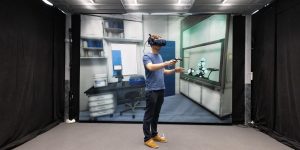
Serum 13
In Serum 13 – A VR Trust Game, players wear a VR headset and solve tricky tasks in a virtual medical lab. An AI assistant is on hand to provide support. But when to trust the AI, when to decide for yourself? Serum 13 makes collaboration with decision support algorithms tangible and stimulates dialogue about human autonomy.
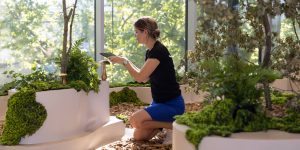
AI Forest
AI Forest is an analog-digital game environment that hides lots of mushrooms. With the help of an AI-based identification app, visitors are supposed to fill their virtual basket. But how well does the app explain why it classifies a certain mushroom as edible or poisonous?

Tectonic Shift II
Jesper Juul (DK), Philomena Schwab (CH)
Jesper Juul is a video game researcher interested in the myriad of ways in which video games are meaningful to players. Philomena Schwab is a game designer and community manager from Zurich, Switzerland. She wrote her master thesis about “Community Building for Indie Developers” and went on to co-found the indie game studio Stray Fawn in 2016.
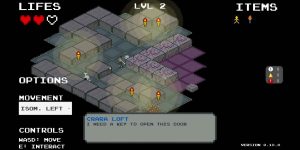
The Solar Moose
Javier Montenegro Naranjo (CU) & Miguel Alejandro Nicolás Díaz (CU)
The Solar Moose creates videogames that aim to generate a user experience that goes beyond the game.

Social Transformations in a Digital World
Moderator: Johnny Lugo Vega, PhD (PR), Shirley McPhaul MA, PRSTRT-CHIP (PR)
This webinar series explores how technology access has a concrete (and potential) social transformative effect when applied to cultural heritage conservation and cultural production. When it comes to cultural heritage conservation, the decaying infrastructure of historic buildings is a real problem, even more so in rural areas. It is clear that digital tools facilitate cultural heritage preservation for future generations.

Open workshop “Lets play. Experiencing art games”
Anastasia Koroleva (RU), Nikita Prudnikov (RU), Katya Galitskaya (RU), Xenia Obukhovskaya (RU), Alexander Vetushinskiy (RU), Margarita Skomorokh (RU)
The workshop is organized as “Let’s play” sessions with artistic games creators, game studies scholars, theorists and philosophers. We will play video games presented in a context of the “Uncanny Dream” project and discuss the topics such as video game as artistic medium, art games mechanics etc.
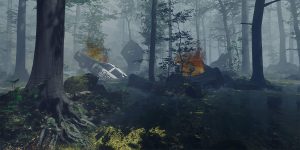
Uncanny Dream
Fedor Balashov aka wasdswag (RU), Katya Galitskaya (RU), Mitry Grankov (RU), Gray Cake (Kate Pryanik, Sasha Serechenko) (RU), Anastasia Koroleva (RU), Yuliya Kozhemyako aka supr (RU), Eugene Kruglov (RU), Ivan Netkachev (RU), Nika Peshekhonova (RU), Alexey Ryabov (RU), Pavel Seldemirov (RU), Vladimir Sheshak (RU), Anna Shustikova (RU), Roman Solodkov (RU), Xenia Obukhovskaya (RU)
The “Uncanny Dream” is an exhibition focused on how young Russian artists, as digital natives, explore the impact of new technologies such as AI, AR and video games on art, culture and society. The project unites artworks reflecting on issues of the Coronacene epoch.

FM4 Spielekammerl-Show – Variety Streaming
ORF Radio FM4 (AT)
Chat, exchange ideas and play a bit: The FM4 Spielekammerl, the Twitch stream format of ORF's youth radio station, is back at the Ars Electronica Festival and going back to basics: interpersonal communication – and shared gaming, of course. We're looking forward to welcoming visitors, on-site at the JKU and of course online.
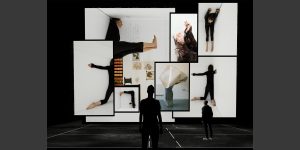
Body_Movement_Play
Mira Loew (AT/ UK), David Altweger (AT/ UK), Philipp J. Ehmann (AT)
The workshop “Postit-ing Dornbirn_Disrupting Invisible Barriers,” which will be facilitated by the game designer Philipp J. Ehmann (play:vienna) aims at developing methods of playfully transgressing the boundaries between public and private, visible and invisible, presence and absence. Parallelly, an interactive and continuously growing installation “Body Hi/story(ies)” by Salon Flux explores the imaginaries of places, psychogeographies of spaces, and spatial transformations through body movement.

Audio Game Center
DDD (Disability Driven Design) Project (JP)
Audio games are created from sound and played with sound, unlike video games where visual information is essential. The project explores the possibilities of experiences created by sound using various media and venues, such as holding game centers in real places, hosting “Prototyping Party”, a hackathon to develop new games with various creators, carrying out online distribution and podcasts.

